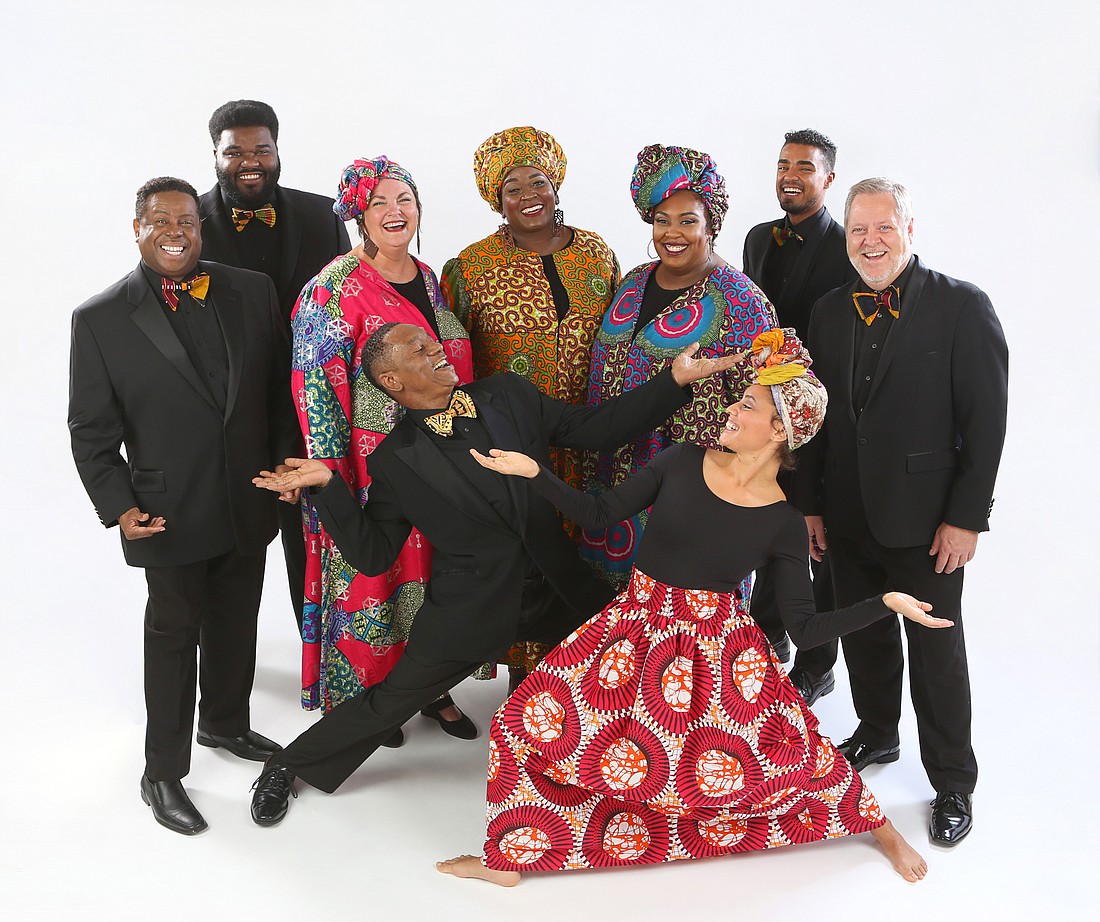- April 25, 2024
-
-
Loading

Loading

Westcoast Black Theatre Troupe (WBTT) and Key Chorale are joining forces to sing the praises of Black history and heritage. “American Roots: The Gospel Experience” will celebrate the legacy of African-American worship music at three area churches this month. What’s the heart of that legacy?
“Inspiration,” says Nate Jacobs, WBTT’s artistic director. Joseph Caulkins, Key Chorale’s artistic director, says “amen.”
It’s an overused word. People eat “inspiring” ice cream cones and go on “inspiring” vacations. But Jacobs doesn’t use the term loosely.
“Inspiration literally means being filled with the spirit,” Jacobs says. “Without the spirit, it isn’t really gospel music. A true gospel singer never goes through the motions. You have to come from a place of conviction and truth to deliver it right.”
Jacobs notes that was true for the hymns and spirituals of the original African diaspora. And still true for the Black gospel music of today.
“This music has an amazing power,” adds Caulkins. “It immediately transports you to a better place and fills you with joy.”
The concert’s joyful music includes: “Ezekiel Saw the Wheel,” “Elijah Rock,” “Swing Low, Sweet Chariot,” “Soon I Will Be Done,” “He’s Got the Whole Word In His Hands,” and “Amazing Grace.” The accompanying narrative frames these songs in the context of African-American history. Without knowing that painful history, you’d never think gospel music was born in the fields of slavery.
These are songs of inspiration. Not the songs of a broken people.
According to Jacobs, that’s the paradox of Black gospel music. It doesn’t sound like the music of slaves. “It’s triumphant, not beaten down,” he says. “Even the songs that deal with suffering always speak of getting through it, not surrendering.”
Jacobs adds that the earliest spirituals and field songs worked on many levels. These songs preserved the past, by incorporating traditional African rhythms forbidden by the white power structure. In the oppression of the present, they offered a way of getting through the day. But they also looked to a better day. They were songs of faith in a better world to come. But also sang of liberation in this world, often in a kind of code.
“There’s so much richness to this music,” Jacobs says. “You can delve into the history and heart of these songs and go as deep as you care to go.”
“Black gospel music offers infinite variety,” adds Caulkins. “It’s a musical universe of kaleidoscopic colors. The possibilities of expression are endless.”
Within that infinite variety, one constant remains.
Inspiration.
Jacobs shares that, to the African-American people who first created these songs, inspiration was a matter of survival.
“Gospel music rejects the council of despair,” he says. “From the songs of the field slaves to Black folk today, it’s always been a way for our people to get over the struggle.”
These collaborative, high-energy concerts will bring that music to glorious life. The choir will combine 20 vocalists from WBTT and 32 from Key Chorale. WBTT’s featured singers include Tarra Conner jones, Ariel Blue, Syreeta Banks, and Jacobs himself. Key Chorale’s featured vocalists are Amy Connours and Jamal Sarikoki.
They’re all great singers.
Needless to say, they’re all inspired.